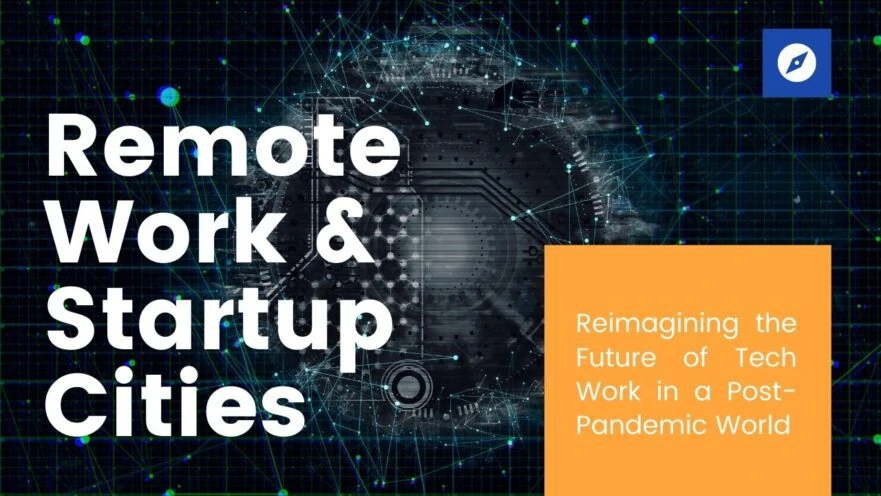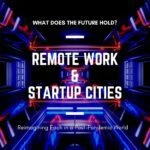2020 was the Lost Year for many of us. It was the year where time seemingly stood still and even the most basic comforts of life were upended, leaving us wondering when we could once again start making plans for the future… To travel again, to make a big move, or maybe just plan a get-together with friends for a beer at the pub instead of on Zoom (I did love the Zoom fails though).
But challenging times are also the greatest catalyst for change, both for individuals and societies, and one reason why we should embrace doing hard things. While this trying time was forced upon us rather than one embraced by choice, I hope that we will look back at this year as being a major inflection point for positive change in several areas.
One major shift, and what may have been the biggest theme of 2020 beyond the pandemic itself, was remote work, and how it became the new reality for countless companies and millions of people. Ultimately, it served to bring what was once a relatively fringe movement to the forefront of the conversation and was regularly featured in both traditional and online media.
The remote work and digital nomad movement have slowly been gathering steam for well over a decade now, perhaps first reaching the wider popular consciousness with Tim Ferriss’s book the Four Hour Work Week (published in 2007). In it, Tim laid out a framework for an entirely new way of work and life, which at first sounds a bit like fantasy, or at least it seemed that way to me at the time.
The book tackled what were then innovative ideas of working remotely overseas in low-cost of living countries without the boss being none-the-wiser (utilizing methods like the VOIP setup I described), by setting up location-independent online businesses that can be run from a laptop anywhere in the world, and ultimately taking an 80/20 approach to maximizing returns relative to the time invested (thus the idea of the four-hour workweek). Detractors tend to get hung up on the title of the book and how only working four hours per week is impossible/undesirable, but they miss the forest for the trees.
Those concepts were quite foreign to many people (and still are, to be honest), but the book created a new generation of dreamers who sought to escape and scrape out their tiny stake of land on the internet with nothing more than their ideas, a laptop, and access to the internet.
I was one of those people, but the ideas in the book (along with other influences as I went down the rabbit hole) had to take root over 3 years before I found the courage to leave the desk job behind. I did not set out with a real plan or a strong conviction of whether I could even make it work, but it’s been 7+ years since initially setting out, so I think it’s safe to say it is possible, even if it isn’t easy.
I think for most people the toughest part is even conceptualizing the leap when for decades the pattern has been to go to college and move to a big city to find a good, high-paying job, but then many still struggle to get by thanks to the high cost of living and the debt incurred from a four-year degree. And those folks are what we often consider the lucky ones.
Centralizing People in Big Cities
Once upon a time, if you wanted to work in finance, you needed to move to New York or Chicago. If you wanted to work in media, you needed to move to Los Angeles or New York. If you wanted the best higher education you needed to go to Boston. If you wanted to work in advertising, you headed to Madison Avenue. If you wanted to work in technology, you headed to Seattle or San Francisco. And D.C. was the place to be if you wanted to make your mark in politics or public policy, which is where I went.
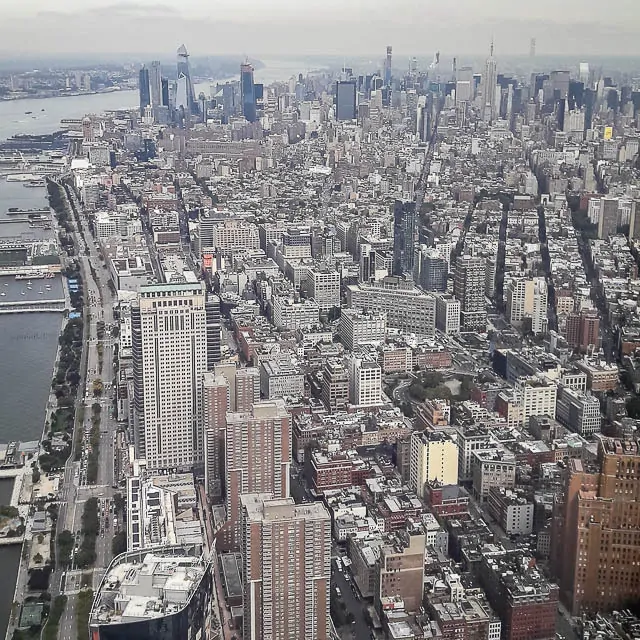
Many graduates from all over the country clustered into big, expensive cities like Seattle, Los Angeles, Boston, D.C., Chicago, San Francisco, or New York. They worked in tech, finance, media, publishing, education, and other industries that concentrated there.
One of the most revolutionary aspects of the Internet and technology was the dismantling, decentralization, or destruction of the old guard and former concentrations of power and influence.
It still is quite remarkable to think about what Airbnb has done to the traditional hotel industry, what Uber has done to taxis, what Netflix has done to theaters and Hollywood, or what Amazon and ebooks have done to the publishing industry. They not only changed the game for the industry but for millions of customers or users around the world.
Today there are Instagram influencers who have larger followings than some Hollywood celebrities. Breaking news no longer comes just from the New York Times or Washington Post, but from Twitter or from hundreds of high-quality investigative journalists publishing independently on WordPress.
High-quality education can be found in places like Coursera or the Great Courses, without having to leave home. There are almost countless cases of shifting power dynamics thanks to the world wide web. Anyone, around the world, can create content and deliver it straight to consumers, or build businesses without the need for investors or huge outlays of capital.
This great shift in decentralizing industries has ironically resulted in a re-concentration of power or centralization into the hands of a few big players (like the tech FAANG companies), which lead to people becoming physically concentrated in places like Silicon Valley and Seattle, which have become de facto tech monopolies. But even that trend is starting to be dismantled…
Decentralizing the Tech City Monopolies
The pandemic has accelerated what was a slow but steady trend of tech workers packing up their bags and moving. There are several factors at play, but I see two as being particularly big drivers.
One, those working in the startup space either as founders or investors are often drawn to the industry, not just for money, but because of the revolutionary or disruptive possibilities posed by technology. They are often compelled by a higher calling and what they see as a greater good for humanity (on the whole, I’d agree that that is true of tech, but there are always unintended consequences or unexpected negative outcomes).
One time when Bill Gates was asked about who he worried about in terms of competition, he responded that what kept him awake at night was not some other corporate giant, but rather two unknown guys working in their garage. That’s essentially how Google was started, and the same goes for Amazon and numerous other disruptive companies — here’s the 360-degree tour of the Google Garage on Google Maps.
But those same revolutionaries eventually become entrenched interests. They are no longer driving forces in innovation or the cutting edge, but actively work to stamp out rivals (by stealing their ideas directly or buying them out). When is the last time something really impressive came out of Microsoft, Facebook, Apple, or Google? They’ve all been mostly doing the same thing for years now.
What was once a beacon for young, ambitious, creative world-changers has since morphed into a more stuffy, homogenous place, as it matures and becomes more corporate and bureaucratic. That sort of environment is anathema to experimentation, innovation, risk, and evolution.
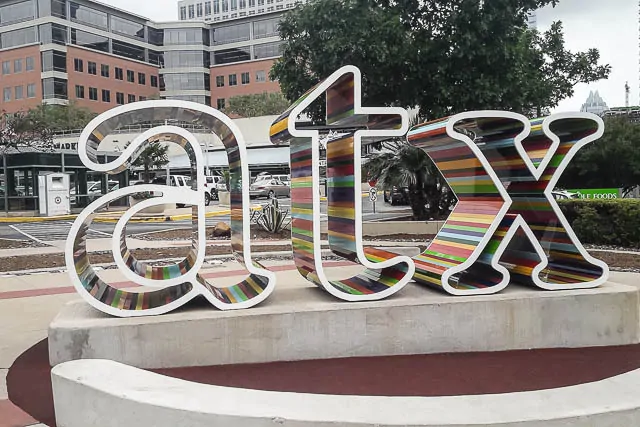
The tech exodus from Silicon Valley has seen places like Austin, Texas growing as a second-generation Startup City where satellite offices and tech entrepreneurs congregate into a new and melting pot (even Tim Ferriss left the Valley for Austin). This vibrant culture and nascent feeling lend themselves better to innovation.
I’ve long argued that the “weight” of a place (city, company, or institution) with a long and storied history tends to crush innovation and stamp people into the same mold. This certainly isn’t unique to tech, as the same thing happens to newcomers in Washington D.C. or New York City as happens in San Francisco or Seattle.
Both Mark Zuckerberg and Bill Gates dropped out of Harvard, leaving behind the confines of the East Coast, so they could head West to become tech founders. In much the same, two guys in a garage, namely Larry Page and Sergei Brin, certainly wouldn’t have been able to create Google had they gone to work for Bill Gates at Microsoft.
Two, these tech behemoths attract droves of people who dream of working for them with their high pay and good benefits. These corporate giants are like General Motors or General Electric of the Information Age. Of course, the high wages and concentrations of people in tech cities are a direct contributing factor to dramatic increases in the cost of living for rent, food, taxes, transport, and everything else. Just ask anyone in Seattle what has happened as the Amazon juggernaut grows in the heart of the city.
Cities like this eventually come to harm innovation because it is simply too costly of a place to have free range to experiment or bootstrap. It’s hard to disrupt if someone spends the majority of their non-sleeping time at the office, maybe living month-to-month just to keep up with a crushing mortgage or rent. The status quo starts to look pretty good.
The two guys in their garage have the time and financial breathing room to take the risks. High Cost of Living (HCOL) areas tend to act as a double-edged sword, in that it traps people in the rat race, on the Hedonic treadmill, and prevents many from ever really getting ahead. Despite being well paid.
How does someone get off the treadmill if they are mired in debt from school and don’t have any alternative but to pay exorbitant costs for rent? The only alternative is to move further away from work and spend hours commuting into the office, which is arguably one of the worst uses of our limited life hours on this planet…
The pandemic was a light bulb going on for millions.

Tech workers quickly realized that they could do their job (and do it well) from anywhere with a solid internet connection… And the restrictions on going out to restaurants, bars, concerts, and so forth caused many to question the sanity of paying more than half their salary in rent or a mortgage in these high-cost-of-living cities.
Many also realized, across a variety of sectors, that they had failed to put away enough savings… A classic symptom of the treadmill. For the most part, it doesn’t matter how much money someone makes, but how much they save/invest as a percentage of overall pay.
It’s tough to know how many digital nomads exist out there, but it is safe to say that millions more have been pushed into that most basic stage: working remotely for a salary. Whether they wanted to or not, their eyes were opened up to the very real possibility of what Tim Ferriss was talking about back in 2007.
When you have the realization that you truly could work from anywhere, how would that impact where you would want to live?
Would you be truly nomadic and drift from place to place?
Would you live in a van and work from a hotspot near some of America’s national parks?
Would you move to Latin America to travel, enjoy tropical weather, and have a low cost of living?
Would you move to the countryside? The suburbs? Close to family?
To a smaller city that offers similar amenities at a fraction of the price?
All of us have different answers, and those answers would probably change during our lifetime if given the chance. I’d equate this to the argument in favor of a healthcare system in America that is NOT tied to a job, which would allow workers to more easily make big life changes or embrace entrepreneurship.
Similarly, why should these computer-based jobs in particular be tied to such a restricted geographic space? Why not allow workers to make decisions about where they want to live? Allow them to vote with their feet, so to speak.
Startup Cities Start Recruiting
This new shift toward the decentralization of tech hubs has caught the eyes of other cities not just in the United States but around the world. Francis Suarez, the mayor of Miami, was one politician who attempted to capitalize on the growing tech exodus from Silicon Valley and the financial services exodus from Manhattan.
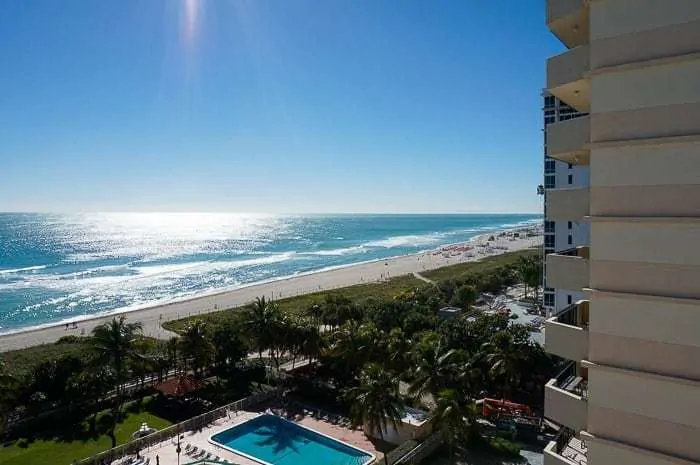
Amid the pandemic, he was actively recruiting people and companies to relocate to their sunny, subtropical paradise. In some ways, he acted as a headhunter on Twitter, pitching and recruiting the new remote workers and even more audacious moves like placing a billboard along Highway 101 in San Francisco promoting Miami as the next tech hub.
Miami is also growing in favor among the Technorati because it is among the few places in the United States with a progressive approach to cryptocurrencies, blockchain, and what is the next great revolution in the internet and technology.
Miami does hold some obvious appeals, like its subtropical climate, excellent connections to global hubs (particularly Latin America, since Miami is basically the unofficial capital city), and it also holds numerous tax benefits for both companies and employees, which has been another factor in the California exodus (Texas is another popular choice).
At the same time, one does have to question the wisdom of trying to make Miami the next tech hub of America…
While it has a cheaper cost of living relative to NYC, San Francisco, and Seattle, it still has a very high cost of living. This is a problem that will only be exacerbated if there is a new tech re-centralization in Miami and a wave of transplants. Miami is already geographically restricted by the ocean and the Everglades, limited in its future expansion, and one of the most vulnerable places for climate change and rising seas in the coming decades.
While the progressive and forward-looking leadership toward the future of tech has earned Miami accolades, I can’t help but wonder what would truly change there?
“Just because everything is different doesn’t mean anything has changed.”
Irene Peter
It’s a bit like rearranging deck chairs on the Titanic. Ultimately, that person would still end up living in a crowded, overpriced city, facing down some of the worst traffic in the country, assuming they plan to do more than just work remotely from their apartment.
Before Miami was making tech waves, a handful of cities were also making big plays to attract remote workers. One of the earliest programs was Tulsa Remote based out of Oklahoma’s second-biggest city. For a few years now, they have been actively recruiting remote workers, primarily in the tech sector, to relocate to the former oil capital of America. To sweeten the deal and open people’s minds, they were paying newcomers $10,000 to relocate for at least one year.
I applied to the Tulsa Remote program at the end of 2019, thinking that I probably wouldn’t even hear back (their acceptance rate is lower than Harvard), but after going through the interview process, I was invited to come and check out the city in person. This was in March of 2020, right as the pandemic was just starting in the USA (I flew in from Seattle too, where the first cases hit). I found Tulsa to be a dynamic and interesting city, offering lots of big city amenities but with a small-town vibe, which was surprisingly progressive and artsy, despite what history might otherwise suggest.
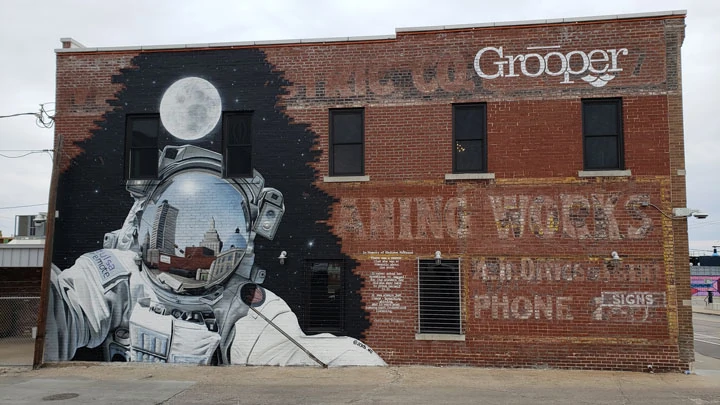
Talking with the program’s past participants, I only heard good things: about how much more affordable it was compared to everywhere else, how they could get around town in just 15 minutes, how much more time they had to, you know, live their lives and reengage with hobbies, volunteering, side hustles (remember the time/space for innovation thing?), and the lively music, restaurant, and brewery scene cropping up. Plus it has one of the most incredible city parks in the entire country!
Those things are all great, but what set Tulsa Remote over the top for me was the community of people they were fostering there with the regular events, the beautiful coworking space, and how it was bringing together people from all over the country. My preconceived notions of Oklahoma were totally inaccurate.
I was all set on joining the program, but then I barely caught the last flight out of the USA to Colombia, the pandemic hit, and you know the rest, as lockdowns derailed any plans I was formulating (and my income got chopped in half as people stopped traveling). But in any case, I think both Miami and Tulsa offer unique lessons that can and should be emulated and replicated.
The Tech Heartland?
Before the pandemic, the majority of remote workers and digital nomads were drawn to a few different areas around the world. Two of the most popular were Southeast Asia and Latin America, with places like Chiang Mai, Thailand, or Medellin, Colombia (where I moved soon after becoming a nomad) becoming two of the hottest crowdsourced favorites as thriving little hubs where ex-pats gathered around laptops and mingled with like-minded folks who served as sources of information and inspiration.
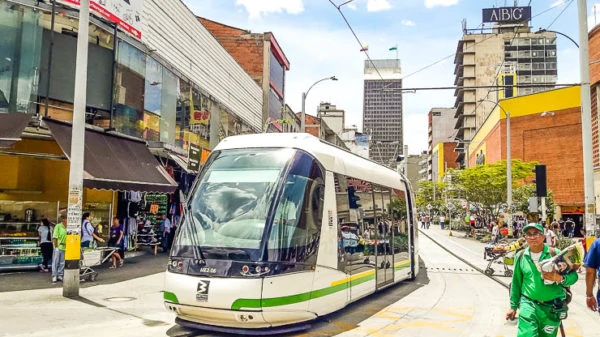
Nearly 100 years earlier, post-war Paris turned into a mecca for writers and artists like Ernest Hemingway, Gertrude Stein, James Joyce, Ezra Pound, F. Scott Fitzgerald, Joan Miró, and Pablo Picasso. In many ways, 1920s Paris was like the Chiang Mai or Medellin of its generation. These members of the “Lost Generation” were drawn here because it was a cheap place to live thanks to a favorable exchange rate and also because “it was where all the interesting people were”.
I think those two simple ingredients: affordable living and interesting people are not only the keys to more innovation (the same goes for artists or writers) but also just a happier life in general. It’s that second element that Tulsa Remote is striving hard to construct in the middle of the Heartland.
Part of the reason the Internet age led to an explosion of innovation was just how accessible and affordable it became to start something, bootstrap, or create the minimum viable product. Anyone anywhere can become a founder of a community, a movement, a multi-million or billion-dollar business, can start a digital currency, or become an artist, writer, or musician with paying fans. These revolutions are launched in garages or bedrooms, not boardrooms.
Dismantling old gatekeepers and re-centralization has been the theme so far with the Internet as the old East Coast institutions gave way to revolutionary new institutions like Facebook, Google, and others. But the next big theme will be decentralization, where not only the workers themselves begin to exit from Silicon Valley, but the companies themselves start to become decentralized…
Blockchain, crypto, and smart contracts will open a new frontier, where the middlemen will start to get cut out. Why wait for the banks or pay PayPal their fee when I can send money instantly, globally, and with low to no fees with crypto? Why pay Uber when I can utilize blockchain smart contracts directly between me and the driver? The same thing goes for eBay, Airbnb, and countless others.
“Whereas most technologies tend to automate workers on the periphery doing menial tasks, blockchains automate away the center. Instead of putting the taxi driver out of a job, blockchain puts Uber out of a job and lets the taxi drivers work with the customer directly.” – Vitalik Buterin, founder of Ethereum.
What if the model for the future of innovative tech cities held something similar?
Today we have a few tech megalopolises like Seattle, San Francisco, or what Miami wants to become, i.e. places where people concentrate and then who get further concentrated into certain neighbors, buildings, and offices.
But what if the future of tech cities was also decentralized? More like a series of hubs and spokes, where tech workers and innovators lived in a variety of smaller cities, working in co-working spaces with people from many different industries. These sorts of tech melting pots, rather than monoculture echo chambers, are what made places like Silicon Valley dynamic and interesting to live in, in the first place. Not only that, but they can bring new careers and possibilities to regions previously overlooked by big tech.
Honestly, I’m more excited by the possibilities posed by a place like Tulsa than Miami. What if America’s Heartland becomes the new, dispersed tech hotspot?
We are already seeing the growth of locally supported programs for remote workers in places like Tulsa, Topeka, and NW Arkansas… Each is located in close proximity but across state lines, offering different pros & cons, and competing with one another to some degree (but their proximity is also mutually beneficial).
These are places that have ample space, a low cost of living (think: buying a house outright for what a down payment would cost in a coastal city), and could truly serve as a great new base of innovation for tech founders or creatives alike (artists, musicians, writers).
The Heartland also has some unexpected aspects that could make it an ideal, dispersed center of innovation for the next age of tech. One of the most intriguing is how well-positioned the region is for clean, renewable energy, particularly wind, and to a lesser extent solar.

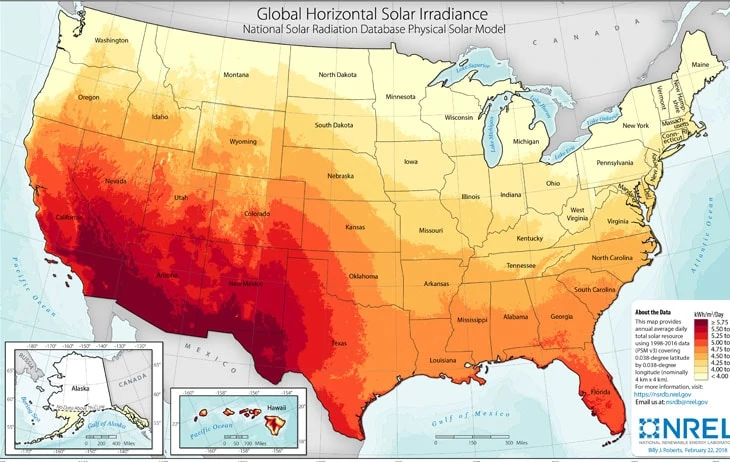
Crypto mining and computer data centers require immense amounts of power consumption (check out this balanced article on how much energy Bitcoin consumes). The future of this industry lies at the intersection with renewable energy, creating entirely new economic incentives to move away from hydrocarbon energy. In turn, monetizing clean energy production will lead to a wave of new innovations and efficiencies in that field.
Many are surprised to learn that Texas is currently the top wind energy generator in the country, producing one-quarter of the national total (if Texas were a country, it would rank #5 in the world in total wind energy generation). This has led to Texas becoming a hotspot for crypto mining, where new mining businesses have been established using clean energy and can also profit by selling excess energy back to the power grid or during times of high demand.
Solar and wind projects tend to be intermittent energy sources leading to times with high production but low usage. Crypto mining has been proposed as an excellent source to use up this excess energy while also serving as a further incentive to increase solar/wind production that will in turn reduce the price per kilowatt-hour.
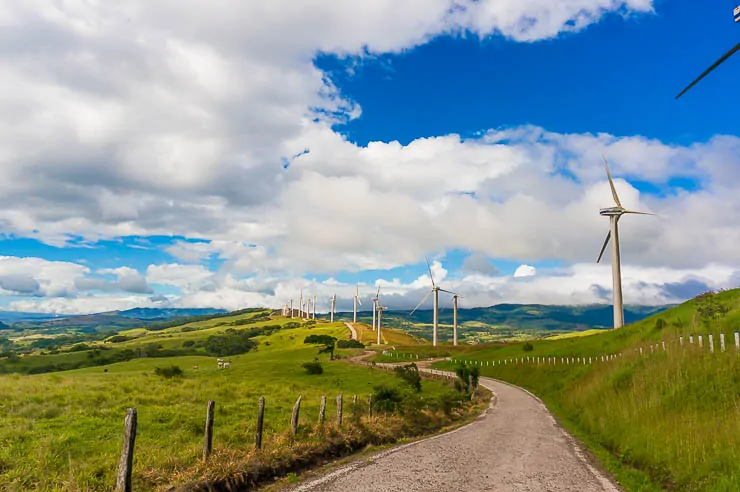
Other innovative ideas that have been embraced are to turn natural gas flaring into a new source of energy for crypto mining. If you’ve seen those big burning flames at the tops of bit vertical pipes in oil country, then you know what flaring is, as they burn off the methane and release it straight into the atmosphere.
This flaring contributes an estimated 1% of global greenhouse gas emissions, and the United States is a top producer behind Russia, Iran, and Iraq. Oil production isn’t going anywhere in the immediate future, so rather than simply waste that flaring, some are utilizing an otherwise wasted resource to generate electricity on-site for bitcoin mining. Crypto can capitalize on the energy that is currently too far away from existing population centers.
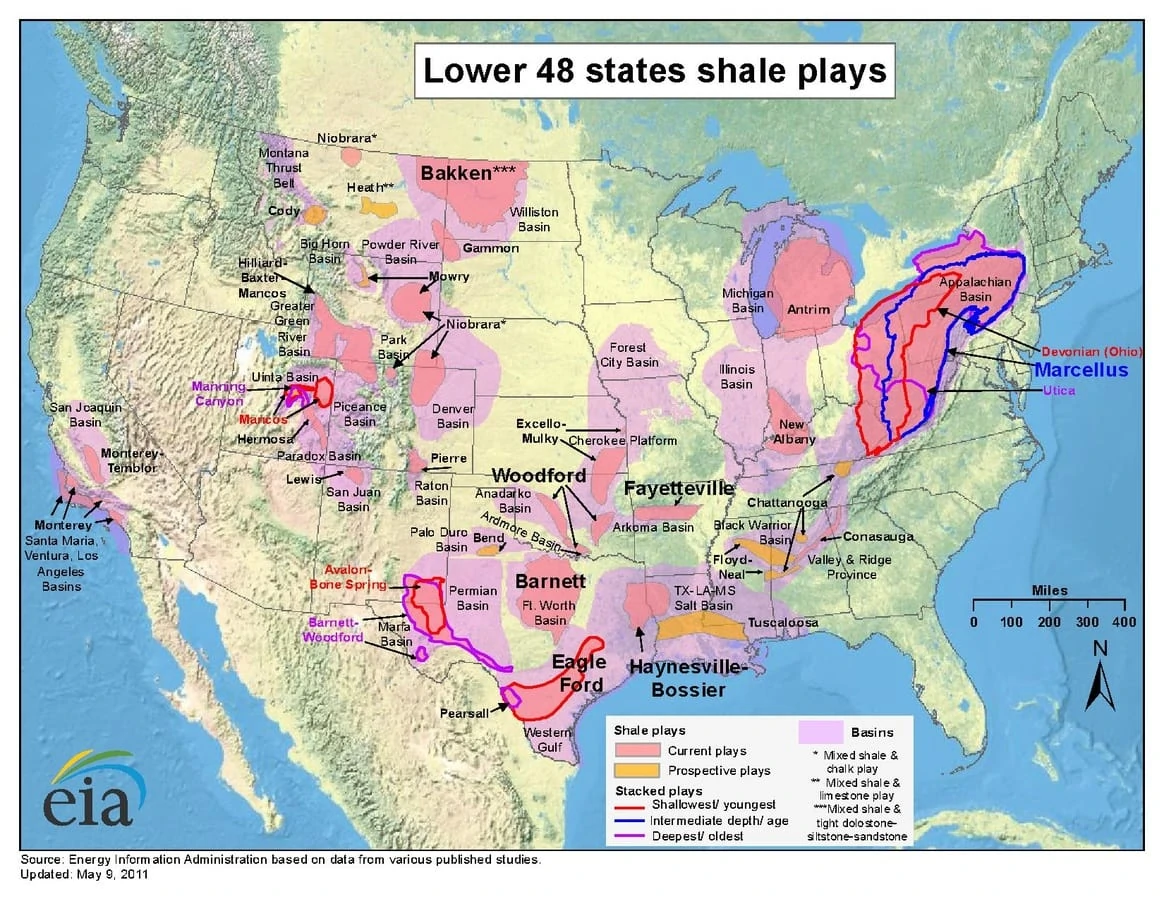
The heartland offers ample space for growth and could be home to even more radical ideas like the founding of new charter cities. Elon Musk has already announced his intentions to establish the city of Starbase, Texas near Brownsville.
Imagine new tech cities cropping up in the middle of nowhere, centered around a recently established clean energy source, not unlike the mining towns that appeared overnight in other times, but for crypto. It wouldn’t be hard to imagine a modern digital land run, like Oklahoma City’s famous and chaotic origin (read Boom Town by Sam Anderson), but with new residents lined up online, ready to buy their NFT property in the new tech hub charter city.
Nevada, for instance, has passed legislation allowing tech companies to form new local governments much like counties with the ability to tax, form school districts, and provide government services. Wyoming has positioned itself as the most crypto-friendly state in the country through a series of new laws, which have in turn attracted numerous exchanges and financial service firms to relocate.
The future of technology promises to be just as revolutionary as the past few decades, if not more so. What is less clear is when and where those next-generation technologies will find a home. It may not even be in America.
The normal trend in history is for the complacent, entrenched power to eventually be supplanted by an innovative and ambitious upstart elsewhere, just look back as the economic center of the world shifted from Southern Europe to Northern Europe, then to America’s East Coast and on to the West Coast (and that’s just recent history). All eyes are on China as the next global power center. They are already the world’s top crypto mining country.
As we’ve seen in America, power shifts also occur internally, it’s just a question of where those shifts will land in the near term. Ultimately though, I would expect these power centers to become dispersed and decentralized over time, as well.
It’s clear to me that we need innovative political leaders like the mayor of Miami, acting like a startup CEO rather than a traditional politician, but in more cities across the country and in some unexpected areas. Leadership at the local and city level to attract next-gen tech and innovators is much healthier than competing over who can provide the biggest tax breaks so Amazon can build a second headquarters or so Tesla will build a new factory.
We need more programs like Tulsa Remote that offer a different path with truly affordable living so interesting people can do innovative things. The old model is already broken and is unsustainable, the question is what the next model will look like and how we can make it better.
What do you think the future holds for remote work and startup cities? Sound off in the comments below!
Read Next: The Sovereign Individual – Remote Work and Lessons for the Information Age
Read More
- The Start Of Startup Cities
- The Age of Startup Cities: How Sovereign Individuals Will Build The Future
- A Decentralised Network of Startup Cities
- How Startup Cities Could Change the World
- Digitalization and the Rise of “Startup Cities”
- Do We Still Need Cities?
- So you want to start a startup city?
- n_society: Saving remote workers money & solving crowdchoice
- A Silicon Valley VC’s Startup City in Asia
- Startup City: Panama
Share This
Did you enjoy this post? Please take a second to share it on your favorite social media platform. Thanks!
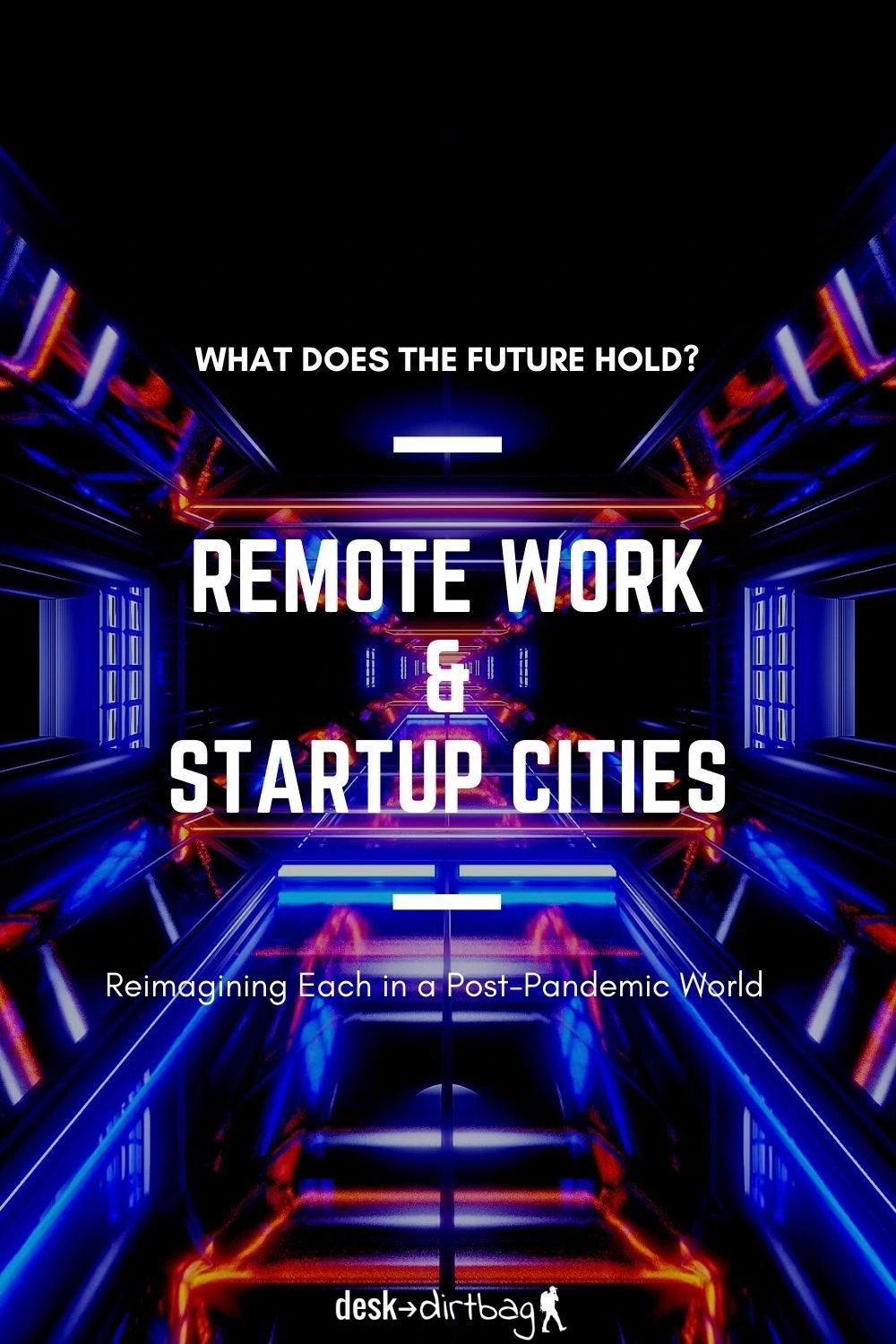
Ryan
Latest posts by Ryan (see all)
- Kazakhstan Food: Exploring Some of its Most Delicious Dishes - August 7, 2023
- A Self-Guided Tour of Kennedy Space Center: 1-Day Itinerary - August 2, 2022
- Fairfield by Marriott Medellin Sabaneta: Affordable and Upscale - July 25, 2022
- One of the Coolest Places to Stay in Clarksdale MS: Travelers Hotel - June 14, 2022
- Space 220 Restaurant: Out-of-This-World Dining at Disney’s EPCOT - May 31, 2022

